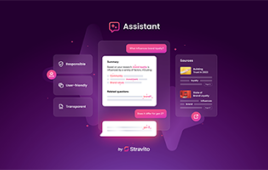
Cancer patients who undergo chemotherapy could soon benefit from a new AI that is able to identify and predict the development of different combinations of symptoms – helping to alleviate much of the distress caused by their occurrence and severity.
In the first study of its kind, published by Scientific Reports, researchers from the University of Surrey and the University of California detail how they used Network Analysis (NA) to examine the structure and relationships between 38 common symptoms reported by over 1300 cancer patients receiving chemotherapy.
Some of the most common symptoms reported by patients were nausea, difficulty concentrating, fatigue, drowsiness, dry mouth, hot flushes, numbness, and nervousness.
The team then grouped these symptoms into three key networks – occurrence, severity and distress. The NA allowed the team to identify nausea as central – impacting symptoms across all three different key networks.
According to Cancer Research UK 360,000 people are diagnosed with cancer every year – with breast, prostate, lung and bowel cancers counting for over half of new cases in the UK. Around 28 per cent of patients diagnosed with cancer in England have curative or palliative chemotherapy as part of their primary cancer treatment.
Payam Barnaghi, Professor of Machine Intelligence at the Centre for Vision, Speech and Signal Processing (CVSSP) at the University of Surrey, said: “This is the first use of Network Analysis as a method of examining the relationships between common symptoms suffered by a large group of cancer patients undergoing chemotherapy. The detailed and intricate analysis this method provides could become crucial in planning the treatment of future patients – helping to better manage their symptoms across their healthcare journey.”
Christine Miaskowski from the University of California said: “This fresh approach will allow us to develop and test novel and more targeted interventions to decrease symptom burden in cancer patients undergoing chemotherapy.”




